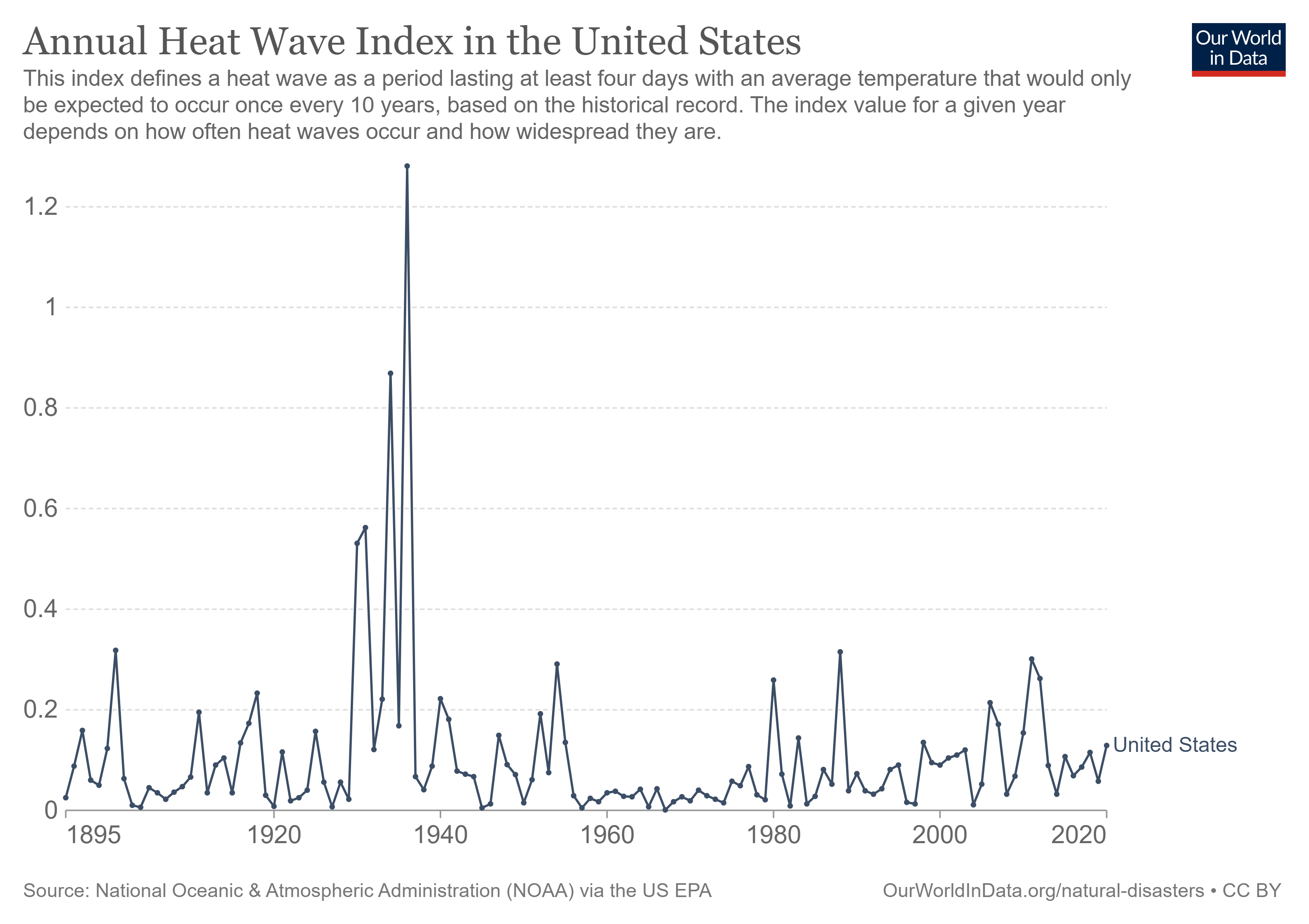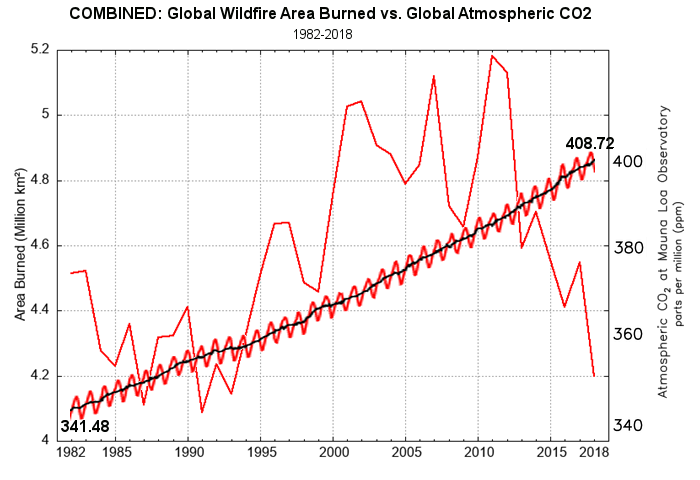National Public Radio (NPR) ran a story claiming that scientists using computer models can now determine how much more severe a weather event was, or whether a particular event was likely caused by, climate change. Weather data demonstrates this claim is false. There are significant issues with the kinds of computer models that attribution scientists use to make these kinds of connections. They have yet to predict any weather event, and real-world weather data show no worsening trends amid current warming.
NPR is famously bad about spreading misinformation about climate science. Climate Realism has covered a multitude of stories debunking the fake climate new pushed by NPR, here, here, and here, for example. In fact, in the first story link listed, Climate Realism debunked a post by this very same “Science Desk” writer, Rebecca Hersher, who again misleads on the connection between weather and climate.
In her latest piece, “Researchers can now explain how climate change is affecting your weather,” Hersher says that scientists can decisively attribute different natural events—specifically heat waves, wildfires, and hurricanes—to climate change itself.
“For some types of weather, it’s become possible to say exactly how much worse it was because of climate change. Or that without global warming, the disaster would not have happened at all,” writes Hersher.
Since climate is an average of weather in a region over the span of 30 years, right away attempting to attribute individual storms to climate change is unscientific at best. Attribution research has been widely criticized for it’s inability to be repeated through testing, falsified, or measured in the real world—all necessary characteristics of science—and for the fact that predictions made by the models are based on emission scenarios that don’t match real world emission data, and are, in some instances, impossible. The climate change and temperature scenarios that weather attribution models are based on run way too hot, according to scientists, and therefore do not accurately represent current warming.
You cannot determine what the difference is between a fictional climate system and a real one—or worse, two fictional climate systems, as is the case with modern attribution science. Attribution researchers compare a a model of the what they think the Earth’s climate would be like, absent any humans in existence, to modeled scenario they create including humans but based on faulty emission and temperature assumptions. The differences between these two are what attribution modelers claim as “proof” that climate change is making weather worse.
Real world data refutes the model predictions.
Specifically, in the case of heat waves, the worst of them occurred during the dust bowl era of the 1930s, shown in the chart below.

The chart shown in the NPR article that allegedly shows an increase in the frequency of heat waves is misleading, as explained in a post on climate website WattsUpWithThat, here. When maximum temperatures are compared across the United States, it demonstrates that most of the warming is in urban areas. The Urban Heat Island Effect causes higher nighttime lows in cities due to concrete and other surfaces taking in heat during the day and releasing it at night. Anthony Watts explains this effect in a Climate Realism post, here.
Nor are wildfires getting worse globally. Just the opposite is true. Satellite data (shown in the figure below) comparing wildfires and atmospheric CO2 concentrations show increasing trend in wildfire occurrence or severity. Indeed, a study published in the peer-reviewed Journal of Geophysical Research, analyzing global wildfires back to the year 1901 reported, “a notable declining rate of burned area globally.” In addition, NASA satellites have documented a global long-term decline in wildfires. NASA reports satellites have measured a 25-percent decrease in global lands burned since 2003.

Another specific claim made in the article is that hurricanes are getting more powerful, intense, or have more rain, due to climate change. Hersher parrots the now-debunked Hurricane Harvey attribution: “Researchers found that climate change caused up to 15% more rain to fall during Hurricane Harvey in 2017. Another study looked at the entire 2020 hurricane season and found that climate change increased extreme rain by 10% for the season as a whole.”
In reality, those attribution studies suffer from the same issues discussed above (and in Climate Realism posts like this one), and data show that there is no increasing trend in hurricane severity or frequency. The figure below shows data on Accumulated Cyclone Energy, a measure of hurricane power, in different tropical basins and the globe.

NPR’s Science Desk writers should take the time to actually look into data, and have just a touch of curious skepticism when confronted with claims made with attribution modelling. The fact is such studies use computer models that have repeatedly proven to be unreliable; unable to successfully predict even temperature trends just a few years out. Accordingly, how could they accurately represent hugely complex weather conditions like hurricanes? Attribution modeling organizations are interested in continuing their work and getting paid to do it, and like anyone selling a product they will downplay the weaknesses and uncertainties concerning their product, in this case climate attribution claims, and make glowing promises about how the product will improve lives. In reality all that’s being sold is fear. It is completely unjustified and does not represent the real state of Earth’s climate.
















National Propaganda Radio is an arm of the federal government, which creates the narrative regarding climate change. NPR “parrots” the narrative because its continued funding is dependent upon it.
I suspect NPR’s misinformation will not be noticed by the new Disinformation Governance Board, which will be too busy governing non-government disinformation.
NPR and Rebecca Hersher are propagandists— nothing more, nothing less.
NPR’s two decade long advocacy and promotion of the evidence-light “Catastrophic/dangerous, CO2-driven anthropogenic global warming/climate change” CONJECTURE would make both Josef Goebbels and Edward Bernays chortle.
Its intentional and deliberate dissemination of climate misinformation is a violation of every tenet of journalistic ethics. It borders on, and possibly crosses into, outright treason.
Anyone paying attention to actual trends in so-called “extreme weather”, know that the left continues to lie about the data (just as they do about everything else). Thankfully we have the Heartland Institute to keep setting the record straight for us
Keep up the great work, Linnea!